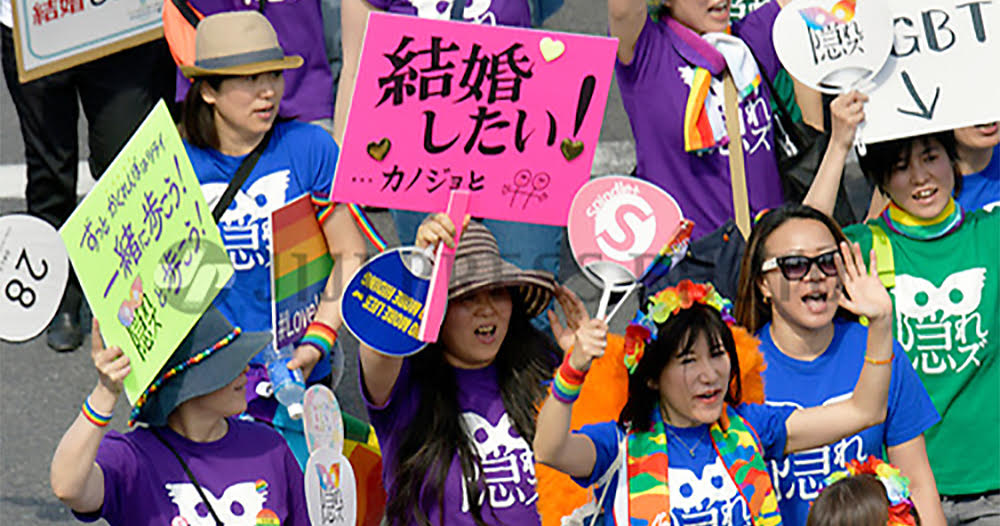A foreign national was granted refugee status by the government of Japan on the grounds of fear over same-sex persecution for the first time. The decision was made in 2018 but only became public knowledge this June. The unnamed person had previously spent two years imprisoned due to their sexual orientation. They applied for refugee status after they had been freed on bail.
There were no previous cases of status being granted under the circumstances of same-sex persecution before this. 10,493 people applied for refugee status in Japan last year, according to the Immigration Services Agency.
42 applicants were granted refugee status because of a fear of persecution, whether it was due to their sexual orientation, religious beliefs, political thought, or a variety of other reasons.
Numerous people must flee their country because of laws which criminalise their sexual or gender identity. Though 28 countries have recognised same-sex marriage, there is still an overwhelming 72 countries which criminalise same-sex relationships. 45 of these specifically outlaw same-sex relationships between women.
Homosexuality is punishable by the death sentence in eight countries and other countries enforce a prison sentence, according to a report by the International Lesbian, Gay, Bisexual, Trans, and Intersex Association (ILGA).
With a large portion of places in the world still unsafe for the LGBT+ community, refugee status is a lifeline for many. By making this landmark decision, Japan continues to strengthen their support for the LGBT+ community.
Members of the LGBT+ community seeking asylum on the grounds of sexual persecution have had to undergo various invasive tests to assess their sexuality in the past. A young woman was refused asylum status in the United Kingdom in 2013 because the Home Office did not believe she was a lesbian. Six years after her deportation to Uganda in July 2019, a High Court judge ruled the decision as an unfair process.
© 2019 GCN (Gay Community News). All rights reserved.
Support GCN
GCN is a free, vital resource for Ireland’s LGBTQ+ community since 1988.
GCN is a trading name of National LGBT Federation CLG, a registered charity - Charity Number: 20034580.
GCN relies on the generous support of the community and allies to sustain the crucial work that we do. Producing GCN is costly, and, in an industry which has been hugely impacted by rising costs, we need your support to help sustain and grow this vital resource.
Supporting GCN for as little as €1.99 per month will help us continue our work as Ireland’s free, independent LGBTQ+ media.

comments. Please sign in to comment.